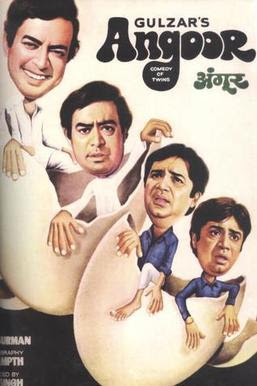Shailendra's (30 August 1921 – 14 December 1966), forte was his ability to write songs that were easy to sing but had a hook that led you to a deeper meaning. The finesse with which he could switch from the philosophical to the trivial is extraordinary. Initially, he was inclined towards Left, some of his film songs had a socialist theme
Take 'Dil Ka Haal Sunay Dil Wala' for instance. It talks about class struggle, exploitation, and nepotism. In another song, Suraj Zara Aa Paas Aa, Aaj Sapno Ki Roti Pakayenge Hum, he talks about hunger—not bitterly but in a jovial manner. His soulful song, Musafir Jaaye Ga Kahan, is one such philosophical gem from Guide (1965).
He created the famous slogan — “Har zor-zulm kee takkar mein, hartal hamara nara ha", this is still used by protesters even today. He used io recite poems in Mushaira and Kavi Sammelan. One of his poems 'Jalta Hai Punjab' attracted the filmmaker Raj Kapoor to have this in his debut directorial film Aag.
He was one of the pillars of the great songs of the Golden Era of Bollywood. Although other contemporaries like Majrooh, Sahir, Kaifi, Shakeel, Jan Nisar Akhtar were regarded as poets who drifted from literature to film songs, Shailendra was generally thought primarily as a lyricist. His sheer diversity of thought is quite unique.
His songs reflect his keen observation of life, culture, relations, and emotions and his hope for a fair and just world Let's look into some of his songs.
There was an anecdote told by his son in an interview that Raj Kapoor took Shailendra to introduce him to K A Abbas who was his main scriptwriter for the narration of the script. , Abbas ignored him. After two-and-a-half hours of narration, Raj Kapoor asked, “Kuchh samajh mein aaya Kaviraaj?” Shailendra replied, “Gardish main tha, par aasman ka taara tha. Awaara tha.” A shocked Abbas finally noticed the stranger in his room for he had summarised his two hours of effort in one line. The three together with Shankar Jaikishen made a formidable team in the years to come. these three lines later created history. Watch the video below to know its popularity all over the globe
The first song he wrote for Barsat(1949) was- 'Patalii kamar hai, tirachhii najar hai patalii kamar hai, tirachhii najar haikhile phuul-sii terii javaaniiko_ii bataa_e kahaa.N kasar hai' the other song was 'taak-dhinaa-dhin dhinaa-dhin taak-dhinaa-dhin barasaat me.n taak-dhinaa-dhin barasaat me.n hamase mile tum sajan, tumase mile ham barasaat mein'. This song was super hit and created a trend of Title sons in Hindi songs.
Some of his songs were romantic (‘Yeh raat bheegi bheegi’, ‘Tere mere sapne’), some metaphysical (‘Wahan kaun hai tera’, ‘Zindagi khwab hai’, ‘Sajan re jhoot mat bolo’, ‘Jao re Jogi’) others of longing (‘Aja re Padesi’, ‘Oh jaanewalae ho sake’, ‘O basanti pawan pagal’) anguish (‘Kya se kya ho gaya’, ‘Dost dost na raha’, ‘Sajanwa bairi ho gaye’), abandon (‘Mud mud ke na dekh’, ‘Suhana Safar’, ‘Aaj phir jeene ki’), or even nonsensical (‘Tin kanastar’, ‘Chuhe mama’).
.He was a complete lyricist in all genres of lyricism: serious, funny, spiritual, romantic, sad, happy, and angry. Gulzar called him the greatest lyricist in Hindi films. He shaped his songs to suit the characters and through his lyrics added other dimensions to the story."
Tumne mangen thukrai hain, tumne toda hai har wada
Chhini hamse sasti roti, tum chhatni par aamada ho
Toh apni bhi tayyari hai, toh humne bhi lalkara hai
Har zo zulm ki takkar mein hartal hamara nara hai
























